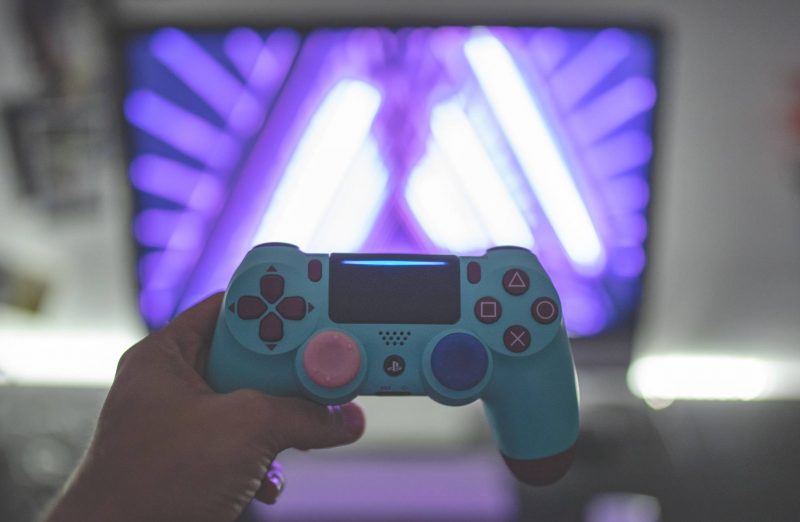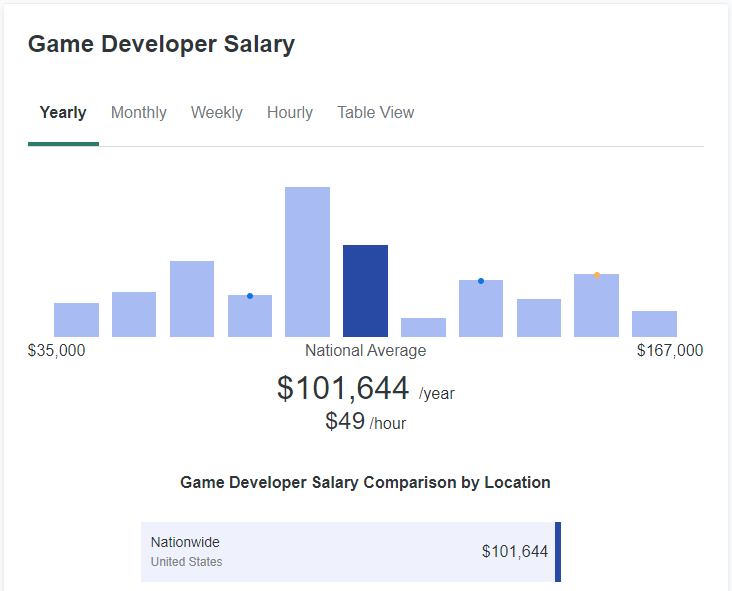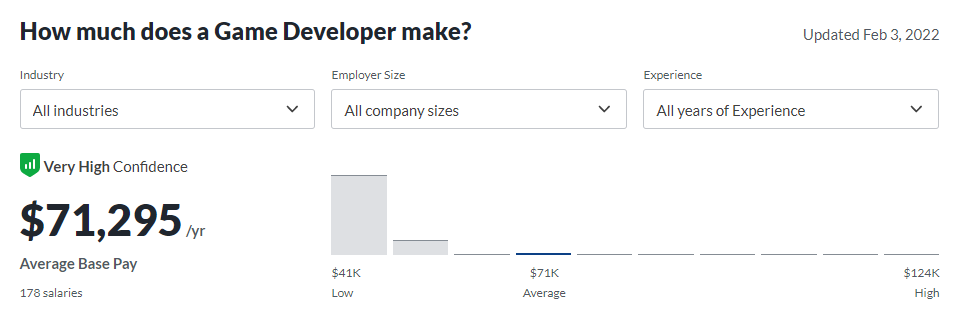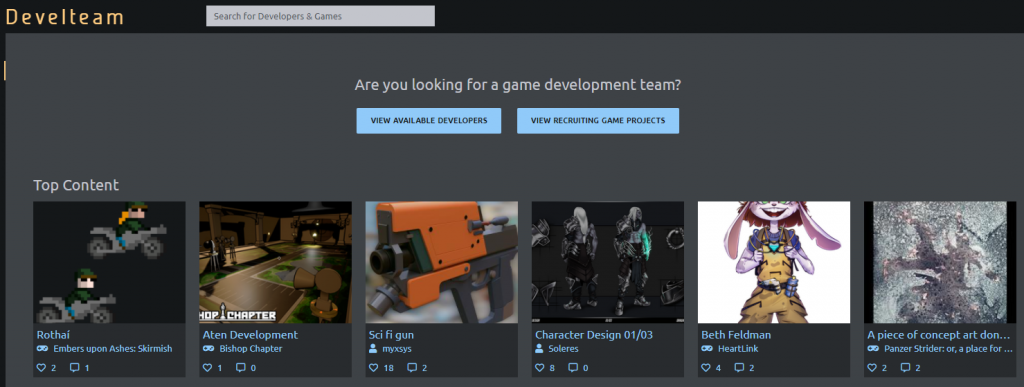Games are not only a niche hobby. The games industry is about mainstream entertainment.
According to the Industry Trends report shared by Google Cloud, there will be over 3.5 billion gamers worldwide by 2024. Almost half the planet, can you imagine!?
The real power of this industry is based on new technology that game creators deploy. Advances around us demonstrate that they will keep growing on such things as planet-scale networks and artificial intelligence.
The popularity of game development has grown in the past 10-15 years. The authors of the NewZoo review admit that the games market generated total revenues of $180.3 billion in 2021.
The competition is high, so it is pretty difficult for companies to hire qualified game development teams.
How to hire a game app developer? Where to start when striving to attract the best programmers’ minds?
This article covers the essential aspects of the games industry and the key requirements for selecting the best specialists for development.
Let’s start with some basics.
What is game development?
In simple words, game development is the process of making a game. This process includes consistent steps from the concept generation to the game release. It can involve different talents: programmers, designers, artists, testers, and writers. Sometimes, it can be carried out by a single developer.
Depending on the game you create, the process can take from a few weeks to a decade.
Game development vs. game design: what is the difference?
Game app development is often equated with game design.
These terms can be used interchangeably. However, they have two different meanings.
- Design relates to the initial vision, the story, mechanics, characters, locations, etc. It is all about the conceptual side of things.
- Development covers game design and includes the technical implementation of the game concepts. Therefore, this term is broader.
There are small game development studios where the same team members are responsible for both areas. In a large company, development and design fields are typically handled separately.
After the definition, we can move to the main phases of the exciting process of game development.
7 stages of the game development process
You may say this kind of development is chaotic in nature. However, specific frameworks and structures are in place to keep studios running effectively.
The game development process can be broken down into stages. You may find different interpretations of this division with the allocation of three to seven steps. We will identify the following:
- Planning.
- Pre-production.
- Production.
- Testing.
- Pre-launch.
- Launch.
- Post-production.
Let’s dive into this process and show it in greater detail.

Image source: Unsplash.com (Axville)
1. Planning
Any video game starts with an idea and enthusiasm in the eyes of its authors. Generating a thesis is the first part of the planning stage.
At this stage, all the people involved should define the type of a game, its key features, characters, target audience, the platform to build it, when and where it will take place, whether it will be 2D or 3D, and so on.
It may seem pretty easy; however, ideating is one of the most complex development parts.
The approved creative idea will serve as the backbone of the entire game. It will set the standard for every participant in the development process.
2. Pre-production
Some people consider pre-production the planning phase. However, it’s better to separate them.
This stage includes brainstorming to give life to the variety of ideas laid out in the planning phase.
Game developers, engineers, designers, writers, artists, project leads, and other departments collaborate on the game’s scope and add up each piece of the puzzle.
The main idea is that this step provides the course to the main work. The more detailed the team works it out, the more harmonious and smoother the further development will be.
During the pre-production stage, the team should cover the following directions:
- Game type (not the genre). It should define the type of game (mini 2D, casual 2D/3D, mid-core 3D, or hardcore 3D game).
- Genre. It can be a strategy, simulation, adventure, puzzle, board, RPG, etc. It will depend on the scale of the future game. Such genres as RPGs or simulations require the implementation of a vast amount of detail, so the team should be ready for these expenses.
- Budget. This marker allows estimating the number of features, the level of graphics, and the entire “packaging” of the game.
- Gaming platform. It is crucial to determine which platform to utilize to make the game. (PC, mobile, console, or perhaps a browser game).
- Audience. Casual games usually aim for the most extensive reach of different players. The more narrowly specialized games (in terms of genre) require a thorough understanding of who will be their primary consumers.
- Intended gameplay. It is about the vision of how the player and the game interact.
- Mechanics. The team defines the rules that realize the player’s interaction with the game (considering its specifics and limitations).
- Characters. The main character typically serves as a digital avatar and moves with the player throughout the game’s storyline.
- Monetization. Most games are developed not only to entertain people but also to profit. It is worth determining this moment as well.
3. Production
Production is known as the dynamic and active game development stage. Most of the time, effort, and resources spent developing video games are during this step. But if the team responsibly approaches the previously described phases, no serious problems will arise here.
The production contains three key elements:
- Graphics and design. This is when main characters, environments, assets, visual effects, and interface elements are created.
- Programming. The main work for programmers begins here, even though they have already joined the game processes during prototyping. They develop a playable product backbone based on an existing or custom engine.
- Sound design. This is where sound designers come to the rescue. They work on sound effects, music, and voice-overs.
Effective teamwork is a critical point at this phase. The lack of communication and performing tasks in isolation from each other lead to errors, rewriting, or redrawing something. Therefore, transparent communication during the work will provide instant feedback from all the project members.
This stage can be the longest development step because the team will implement many edits and adjustments. But in most cases, all errors and challenges will lead to awesome visual and technical game representation.
4. Testing
Sometimes, quality assurance is included in the production phase. However, here we’ll talk about it separately.
Testing stands out from the previous stages as it prevents the game from failure. Nothing new is being created here. QA specialists check the accessibility of all game areas, the correct implementation of features, the correct display of elements, etc.
This stage is often implemented superficially or even skipped. It happens because the game development timeline is always tense, so every customer prioritizes its stages differently.
Players are picky, selective, and attentive to the little things. Therefore testing should be done perfectly.
When a game receives negative feedback for bugs and crashes, it automatically falls into the category of unsuccessful products. So, every development team should remember that there is only one try, and it shouldn’t be wasted.
5. Pre-launch
This phase is known as a stressful time for gaming studios. It is all because self-doubt questions may download developers’ minds and they’ll wonder how people will react to their product.
Before a beta copy is released, the game will require some marketing efforts.
Small studios don’t always have hefty marketing budgets to attract attention to their games. Luckily, they may use advertising or crowdfunding.
The scale of advertising activities is commonly proportional to the scale of the game. However, sometimes the cost of such a campaign can exceed the budget for the entire game development. It should always be taken into account.
6. Launch
The promotion activities are over, and the finish line is around the corner. Here we should admit that the most critical step is left – the release.
Until this moment, the team can still add some minor edits and improvements. This often relates to the visual range (animation, textures, honing models, etc.). Even small details are vital as they make the game more immersive and colorful.
Releasing a game means providing it to stores. Players can download it for free or buy it, depending on which platform the game is released for and on what terms.
It is worth noting that even when the game is out into the world, its designing process doesn’t end there.
7. Post-launch
Now the team has the light is at the end of the tunnel. They got over the launch day and should be happy now. But not really.
Post-launch (or post-production) is also an exciting time for any gaming company. Even now, there’s still work to be done.
Games are often launched with batches of minor bugs. The first months during this stage are usually spent identifying and eliminating these bugs.
Sometimes players submit bug reports or speak up about errors in online forums. It is all part of post-launch support. Providing regular updates for the game is another part.
The competitive gaming environment requires games to remain afloat as long as possible and do not dissolve among their counterparts. That is why the game development process in modern realities is impossible without this phase.
What do game developers do?
Game developers are responsible for gameplay mechanics, characters, audio assets, and developing the story itself. They can act as front-end and back-end developers, meaning that they tend to be efficient programmers specialized in several programming languages.

Image source: Unsplash.com (F. Gagnepain)
The typical standard for the gaming industry is C++. It is pretty tricky to learn (compared to other languages), but many game developers master this language as it provides more autonomy in game design.
Another popular programming language in game development is Java, which is known as a universal language. It is commonly used for Android as it is native to Android apps.
It is similar to C++, so game developers can know both languages for general game development purposes.
Games that run on websites or web apps are often made with the help of JavaScript and HTML5. Their combination stimulates effects and improves the appearance of a development project.
Modern games are often made with a mix of technologies. Some utilize their own custom engines from scratch, while others apply popular ones.
What about the skills of game creators?
General skills required to be a game developer
Game developers must have professional hard and soft skills to meet the needs of a functional game. Here’re some of these skills:
- Proficiency in game engines (at least two).
- Expertise in popular programming languages (for example, Java and C++).
- An understanding of the process of game development.
- Familiarity with innovations and new industry developments (for example, VR).
- Critical and analytical thinking.
It’s worth adding some words about the popular engines developers utilize in their work.
The list of the demanded game engines
- Unreal Engine.
- Unity Game Engine.
- CryEngine.
- Game Maker.
- Source.
- Construct (2 or 3).
- Twine.
- Buildbox.
- Frostbite.
The meaning of hiring a game developer
Do not expect that development is a quick and straightforward process.
All studios want to leave game development up to dedicated and talented professionals. And everyone understands that it is impossible to skip one of the stages of development.
Almost half of the stages are loaded with testing for bugs. Moreover, the game design contains modeling, mechanics, and prototypes.
The fewer specialists your team have, the greater workload you’ll get for yourself. It will lead to stress and greater chances of burnout.
Another crucial thing is to work with people who know what they’re doing. This is the only way to get a valid return on your investment.
Different studios have their requirements for development teams and their roles. Let’s dive into the details.
What are the game development roles?
Below you can see a list of the core roles involved in the process.
Game programmer
Programmers are responsible for writing the code that makes the game playable on different gaming consoles and computers. They develop gaming software, configuring how users will interact with the game.
Game designer
This role is for handling the creative elements of a game.
It may include generating goals, storylines, rules, characters, and possible challenges. Design is also about working out gameplay and pitching the concept to publishers.
Game artist
The duties of artists include fleshing out the look and feel of a game and applying expertise. It is about establishing color palettes, special effects, and so on.
Sound engineer
Sound can influence emotions, create tension and boost excitement. Sound designers are responsible for controlling all aspects of sound during development. They create background ambiance, edit audio to match the motion and mix musical soundtracks.
Game tester
The primary duties of this role contain quality assurance tests on a game by playing it multiple times. These specialists report bugs to the team and offer feedback to game developers to clarify the instructions and simplify the game experience.
Content creator
This role may involve animators, writers, musicians, and 3D modelers who make the game more marketable.
This article will not be complete if we do not list the main advantages of the industry in which you are looking to hire the best talents.
Six benefits of game development
A simple game is a good start for anyone who strives to develop an application.
There are vivid advantages of game development that can boost its growth for the future. Let’s list them right here.
1. Free to start
There are many free engines that allow game developers to use the environment as they like.
2. Consumer base
The market of the gaming industry is expanding. The advent of mobile games has influenced this to the greatest extent. People all over the world are playing games with iPads. From kids to old.
There is no need to spend millions to game development at first.
3. Larger investments
As mentioned before, the gaming industry has taken giant leaps throughout the last years. Millions are being poured into game development with great returns. It is cool when famous tech companies are getting involved.
4. Tech progression
Technology is improving. Some of the innovations directly affect the gaming industry’s growth. Let’s recollect virtual reality. With its help, gamers can have genuinely immersive, 3D gaming experiences.
5. Merchandise appeal
Attractive games provoke the appearance of cults. Their fans provide businesses with an easy way to reach extra capital through the sale of merchandise.
6. Transferrable skills
Game development is a type of development, so it requires many skills typical for this area. These skills are transferable, so companies can get a larger pool of applicants.
Choosing the right game technologies before hiring a dev team
The idea that must be highlighted once again is that you have to understand which technologies your game will be developed in.
You will need to discuss specific requirements with a game developer or a development company.
Such companies consist of different professionals with competencies in programming, UI/UX, 3D modeling, animation, audio, and visual arts. Their size depends on the complexity of the future game.
How to hire game developers: some common ideas
After you generate your business strategy and a plan for game development, you should find talented developers to close the deal.
You will have to narrow down what engine would be most appropriate and figure out other vital details. Then you will be able to find developers who specifically work with the selected engine. This is exactly the same as in case when you want to hire a programmer for any other project.
Developers often prefer Unreal or Unity because of their reliable functionality (LaraCroft or BioShock are famous examples of their titles).
Do not hesitate to request to see a developer’s portfolio of previous games they have worked on (especially if you strive to hire remote developers).
Measure the games based on creativity and the quality of performance.
Also read: How to hire offshore developers
Alright, after reading about all the benefits of this profession, you may logically be puzzled by the question: “How much does a game developer cost”?
What is the salary of a game developer?
You will be right when supposing that this can be a lucrative field.
According to ZipRecruiter data, the average game developer earns $101,644 annually (as of Feb 1, 2022).
The same data presented by Glassdoor (as of Feb 3, 2022) looks like this:
Note: If you plan to hire a mobile game developer for the short-term and not a whole year, it makes sense to look at hourly rates.
The role of online game development communities
Thanks to the game development communities, startup studios can post their jobs and get access to the profiles of the community members.
The profiles contain information on the skills and projects of their members, although they are not verified and can provide incomplete data.
Develteam is a vivid example. This is a free online platform for recruiting team members and creating projects.
You’ll see job offers posted with the project description. It is possible to communicate with developers through the comments section.
Toptal and Upwork provide access to the profiles of freelancers with years of experience and game development expertise.
Toptal is a professional freelancer network with only top developers. Upwork is known as the market-leading provider of freelance talents.
Every developer has a profile that gives a complete picture of their expertise and relevance to various projects.
Marketplaces for offshore development talents
Some studios do not cooperate with freelancers but only with developers employed by pre-vetted software companies. Due to this fact, they can ramp up their development by adding full-time contract engineers to the team.
The vetting process ensures that the selected developers are best in their areas of expertise. It allows assembling game dev teams within concise time frames.
Popular marketplaces provide access to thousands of developers from Eastern Europe, Latina America, and worldwide.
Welldoneby company listing
Welldoneby is an excellent place to find professional game developers from different geographical locations. The catalog provides portfolios, the size of budgets, reviews of the company, the cost of an hour of work, and other valuable data.
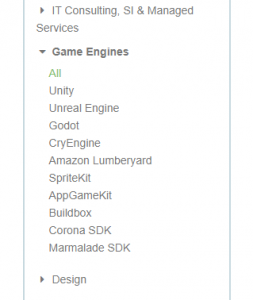
At the same time, the platform allows finding top software firms from other spheres, not only game dev.
All firms are verified. Welldoneby monitors their work quality, checks reviews, and deals with complaints. You can choose a firm from Europe, Asia, South or North America, or Africa.
Bonus: Top-5 game programming books
If you are a newcomer to the exciting world of game programming, you cannot excel without the following books.
Game Engine Architecture
This awesome book describes every system of modern engines and the detailing of inter-system interactions. You’ll easily understand the subject no matter you are an experienced developer or a talented beginner.

Mathematics For 3D Game Programming And Computer Graphics
This is a kind of an excellent reference for those who are working on 3D programming and computer graphics. Each chapter of this book contains a practice exercise with the answer key.
The important thing is that you must have some basic knowledge of math to make the best possible use of this book.

The Art Of Game Design: A Book Of Lenses
This book offers the most practical approach to the game development process. It will carry you through some secrets of game psychology, adding a fresh perspective to your way of thinking.
The book is presented with attractive and easy-to-understand illustrations and helpful examples.

Artificial Intelligence For Games
If you are looking for game programmers for hire, this book will assist by providing a refreshing review of artificial intelligence knowledge in development. It includes all the information that is necessary for readers to create an implementation on their own.

Game Coding Complete
This book serves as a newcomers’ source for game programmers by broadening their horizons of knowledge and introducing more advanced topics. It covers all the topics which are usually left out by some other books like memory management and pointers, scripting, scheduling, debugging, etc.
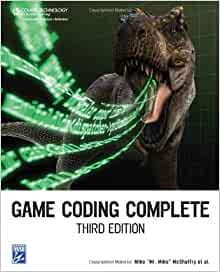
The list of the best UX books can be also helpful.
The bottom line
The game development industry provides more than enough opportunities for any startup to become well-adjusted and successful. Software engineers, game designers, sound specialists, content creators, and other roles come together to create something outstanding.
Finding a game dev team for your project can be a daunting task. It may take quite a lot of time to spot talented candidates at reasonable prices.
If you are new to the hiring process, it is important to familiarize yourself with the best practices to game development and software development rates by country to search in an effective way.
Games are fueling new technological advancements. They are progressing and dictating trends for the future.
Feel free to contact us, and we’ll be happy to provide you with more insights into the process of hiring developers.
FAQ
Let’s also consider some frequently asked questions related to the topis of hiring game developers.
What is game development?
Game development is the art of creating games. It involves the design, development, and release of a gaming product.
What does a game developer do?
A game developer, also known as a game programmer, writes code for games for different formats (PCs, consoles, web browsers, and mobile phones).
What are the roles of game developers?
Game developers are comprised of programmers, artists, software engineers, sound engineers, testers, and content creators.
How much does it cost to hire an offshore developer?
The cost of hiring offshore developers depends on a specific country. This market is rather overheated, and rates change every month.
The average game developer earns $101,644 annually, according to ZipRecruiter (as of Feb 1, 2022).
What are the main risks of IT outsourcing?
Many companies rely on remote programmers, however, the outsourcing model is not perfect. Poor communication, lack of attention to the company’s culture, insufficient business analysis, and poor technical documentation are the main risks of IT outsourcing.
*the source of the featured image: Unsplash.com (B. Mazurek)





